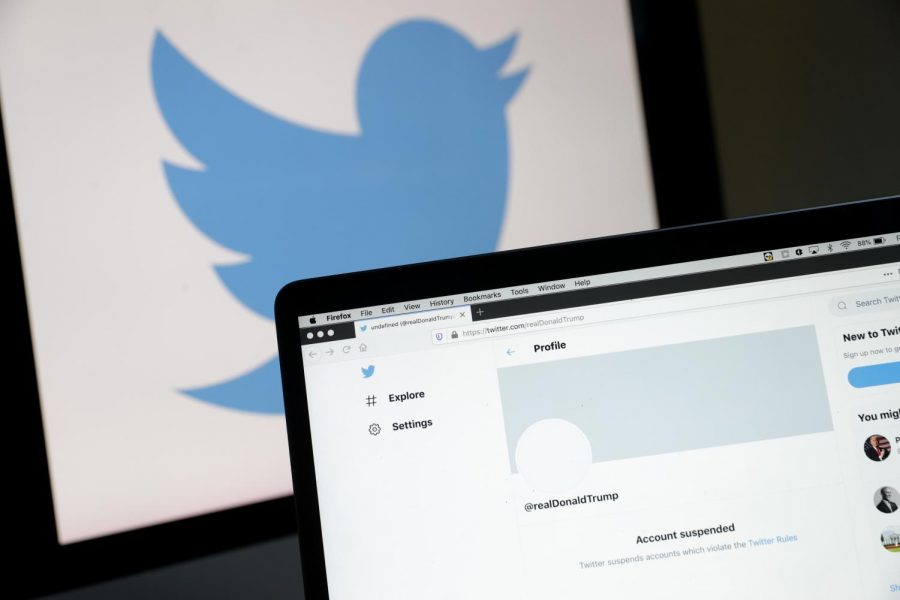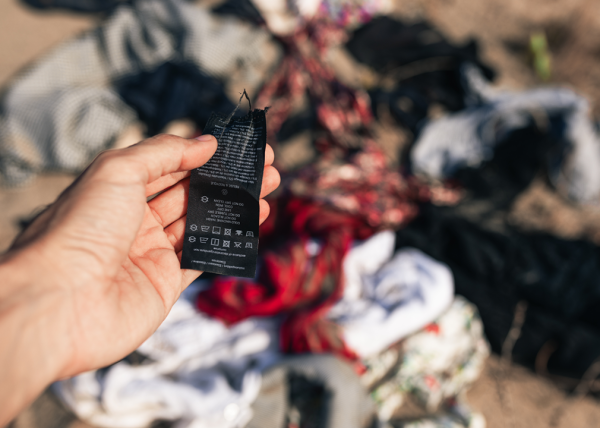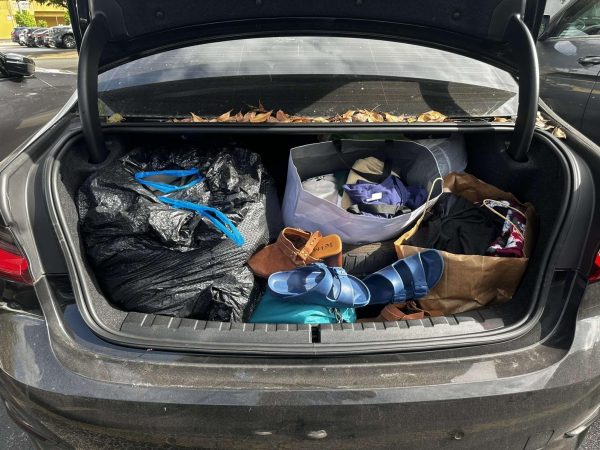Op-Ed | Tech Censorship: The Dawn of a New America…
(Justin Sullivan/Getty Images/TNS)
The suspended Twitter account of U.S. President Donald Trump appears on a laptop screen on Jan. 8, 2021, in San Anselmo, California. Citing the risk of further incitement of violence following an attempted insurrection on Jan. 6, Twitter permanently suspended Trump’s account.
March 8, 2021
Right now we are facing a dangerous moment for all in modern American history; the way we handle the current largest threat to our democracy has the perilous potential to shape the way our generation communicates, and what we can communicate, forever.
Here is what is happening now: Tech censorship, having occurred on both sides for years, has become the indirect initiation of a “free for all” by social media companies to censor, “fact check”, or slap a “misinformation” or “missing context” label on any post that defies the social norm or is deemed “offensive.” The Black Lives Matter protests, 2020 election, and Jan. 6 capitol riot has exacerbated tech censorship, and both the left and right have found themselves temporarily or even permanently banned from social media. Political figures and companies, such as Tulsi Gabbard, PragerU, Matrix, Element, Parler, and even the U.S. Justice Department have launched legal battles against these companies for their role in the deplatforming, censoring, and unlawful sorting of information.
Key pieces of legislation facilitating this new norm are the First Amendment and Section 230, which state: “Congress shall make no law respecting an establishment of religion, or prohibiting the free exercise thereof; or abridging the freedom of speech, or of the press; or the right of the people peaceably to assemble, and to petition the Government for a redress of grievances.” The keyword here is “Congress;” since social media companies and tech giants are not a government entity, they are private companies that can do whatever they please, fueling the unaccountability of their actions from our government.
Despite these actions of social media companies being unconstitutional, Section 230 is the very reason these companies are not considered a federal entity: “provides immunity to online platforms from civil liability based on third-party content and for the removal of content in certain circumstances.” Since 2019, it was lobbied and created for this exact scenario, and is the only piece of legislation permitting the lack of Congressional oversight over these monopolies.
As Vivek Ramaswamy and Jed Rubenfeld stated in the Wall Street Journal, “Using a combination of statutory inducements and regulatory threats, Congress has co-opted Silicon Valley to do through the back door what the government cannot directly accomplish under the Constitution.” This is the reason why Section 230 was such a major victory for Big Tech: Google, Facebook, and Twitter are now enabled to do something our Constitution doesn’t allow them to do without the liability. It’s important to note that the First Amendment was not created to protect everyday speech; it was created to protect controversial speech that people may not agree with. Even though Section 230 was devised to condemn and censor “hate speech”, this is subjective. Who gets to decide what is considered offensive to some and not others?
You may be asking yourself, why should I be concerned? Realistically, once you crack down on some speech, you burst open the floodgates to the kraken of censorship on all speech, evident in nations such as China, Russia, North Korea, Cuba, etc. where citizens are denied the human right of free speech. Despite the “egalitarian” approach of internet censorship — preventing the rest of the world from being exposed to content that is offensive — social media companies have turned power hungry, over-extending their welcome in the global sphere. This is a violation of our constitutional right under the First Amendment and under the intentions of our Framers; we have let social media and digitalization play such a huge role in our lives to the point where they act as an unofficial branch of the government. So, why aren’t they treated as such?
One thing everyone seems to forget: we are the consumers. We don’t have to support these platforms, who gag the American informational reel behind a computer screen. I get it, you may think certain censorship, such as that of the rioters from Jan. 6, is justified, but every other conservative or dissenter to the political narrative of our “Big Tech Overlords” should not have to suffer. This does not permit the right to discriminate and disconnect Americans based on their political ideology. Big tech companies have become one of the most powerful monopolistic institutions in this world, and they now have our nation in a chokehold; they are a governmental entity without accountability and recognition.
The First Amendment is the most sacred right we have as Americans; it is a constant theme that totalitarian and dictatorial governments suppress the First Amendment to push their own agenda. We have a problem, and that problem is that we are being stripped of our Constitutional Rights all for someone else’s definition of the “greater good”, it’s Un-American. We are now entering a new America, where suddenly discourse and dissenting views are the enemy. Where one perspective is the norm and everything else is the bias, poisoned with lies and misinformation; where everyone must communicate the same thoughts on social media or else they will be silenced. Why do we give social media so much power? Why do tech giants like Twitter and Facebook get to do this with no repercussions or Congressional oversight? Questions like these that remain to go unanswered further plunge this great nation into a dangerous dark hole, where our civil liberties are at stake.














J Lopez • Mar 9, 2021 at 10:04 am
Excellent article.